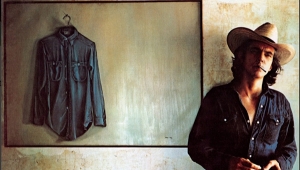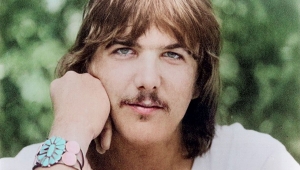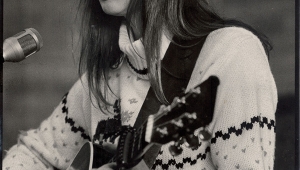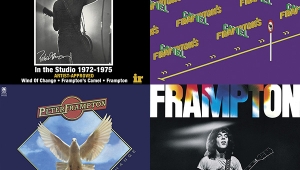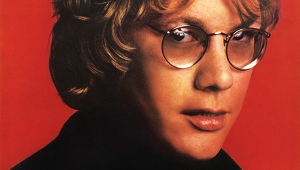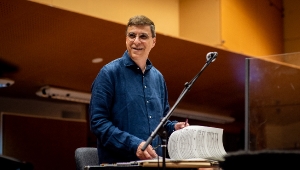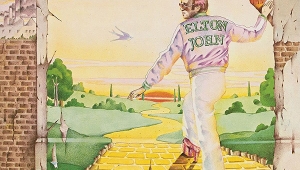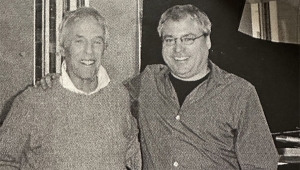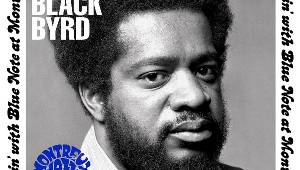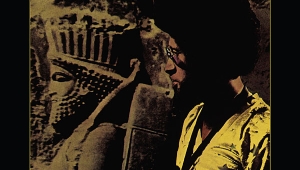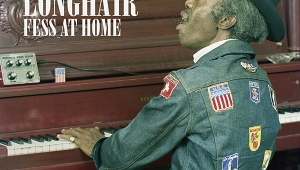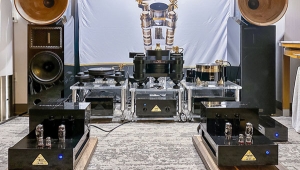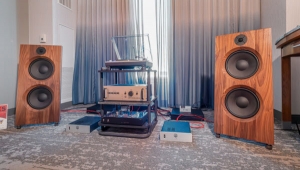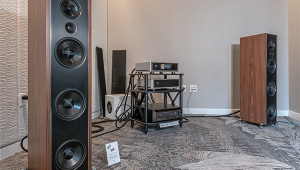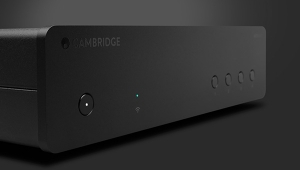| Columns Retired Columns & Blogs |
Records for the New Land
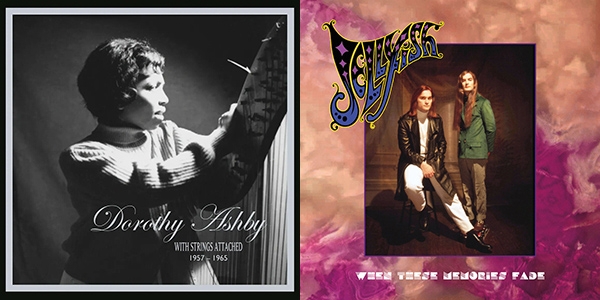
Resurrecting musical treasures is a tough business. The explosion of vinyl-reissue labels, ranging from superlative to second-rate, has made it increasingly difficult for newcomers to stand out—to make the kind of splash that serious LP buyers will notice. Even more elusive is endurance and turning a profit. The affable, musically savvy James Batsford, owner of a pair of vinyl-only UK labels, New Land Records and Omerta Records, can't help but laugh over our New York–to–London Zoom connection when I ask why an obviously intelligent person with taste, like himself, would jump into the vinyl-reissue tarpit?
"I love records. I want to contribute something to the history. I wasn't around in the era of all the records that I love, but I'd like to be part of the story, not for egotistical reasons but to keep their story alive. That's always the aim of New Land, to pick up these records that maybe are just a bit lost in the vaults. To give them a new lease on life, potentially allowing some new people to discover them, which is fantastic."
Admirable, of course, but what about the economics? How do you survive when LP plants are backed up, so much has been reissued already, and the costs to do a quality job can be astronomical, in time and money? Batsford, who worked at indie label Domino Records before striking out on his own, says that, for starters, he trusts his own taste in music. His other label, Omerta Records, which he founded with a friend who worked for Fat Possum Records, releases hip-hop albums on vinyl, new and reissue, once a rarity in the instantly digital world of hip-hop.
New Land, an eclectic imprint of which Batsford is sole owner, has now made its mark among reissue labels, thanks to a pair of well-timed, beautifully executed projects. Available first on multicolored and now black 7" discs, When These Memories Fade collects the UK singles of US power-pop band Jellyfish, which broke up in 1994 but has since become a revered cult act whose two original LPs and later reissues are prohibitively expensive. That first reissue was followed by a multidisc celebration of jazz harpist Dorothy Ashby, With Strings Attached, 1957-1965, which reissues the jazz harp player's first six albums: The Jazz Harpist, Hip Harp, In a Minor Groove, Soft Winds: The Swinging Harp of Dorothy Ashby, Dorothy Ashby, and The Fantastic Jazz Harp of Dorothy Ashby. So far, Batsford's judgment has been on-target. He says the color-vinyl version of the Jellyfish set, which was limited to 1000 copies, sold out in 24 hours via the label's website, newland.ochre.store. Just 100 Ashby boxes remain unsold, he said, and he expects those to be gone in a matter of weeks.
Ashby was a playwright, activist, and collaborator with Stevie Wonder, Freddie Hubbard, and Bobby Womack, among others. The six albums in the set were originally released on the Regent, Prestige, Jazzland, Argo, and Atlantic labels. The first three were engineered by Rudy Van Gelder in his Hackensack, New Jersey, studio. All six were remastered for this release by the ubiquitous Kevin Gray at his Cohearent Audio in Los Angeles. Original analog tapes were the source for these reissues except for The Jazz Harpist and Dorothy Ashby, which used digital sources because the original tapes have been lost.
Since her death in 1986, Ashby's work has been kept on the radar thanks to the unlikely intervention of hip-hop artists including Jurassic 5, Pete Rock, and Drake, all of whom have sampled Afro-Harping (1968) and The Rubáiyát of Dorothy Ashby (1970).
Upcoming New Land projects include a pair of albums from trumpeter Kenny Dorham, an unreleased live album from baritone saxophone player Gerry Mulligan, and a four-LP box of unreleased Charles Mingus recorded live at Birdland in NYC in 1961–1962.
"From being a vinyl fan," Batsford says, "I know what people are looking for when they buy one of my records. You have to know it was done the right way. From our point of view, the aim is to always get tapes. Failing that, some kind of high-level transfer. Then it's [imperative] to put it in the hands of the right person for the right kind of music. Kevin Gray, I feel, is the best for jazz. He's done an amazing job so far. All the jazz stuff is pressed at Pallas because I feel like they are the most trusted, and I'm a fan of their work."
Young and hyper-focused, Batsford has clearly learned the fine art of endless patience, a key to survival in the often-maddening world of LP reissues, where indie labels with limited finances compete for reissue licenses, battle major-label inertia, and endure the often multiyear slog that clearing tapes can entail.
"You have the idea now, and you hope by 2026 it will come out," Batsford says wearily with a straight face. "With a project like the Dorothy Ashby, the costs involved and the time it takes to bring it all together, ... until you announce it, you do think, Is anyone going to be interested in this? It's not exactly Miles Davis. It's relatively niche-ish. So, it's really amazing to get the feedback. It really makes it all worthwhile. Spend all that time and people dig it, it's just the best."
- Log in or register to post comments
